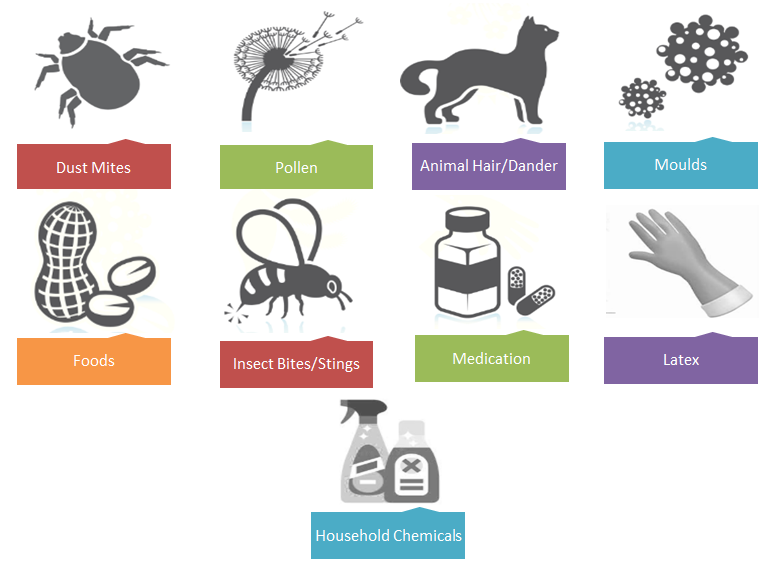An allergy is an unnecessary immune response to a normally harmless substance1. Allergies are very common. They're thought to affect more than 1 in 4 people in the UK at some point in their lives2.
Examples of common substances people are allergic to include pollens, dust mites, insect venom and foods such as nuts or shellfish. When these substances cause an allergic reaction they are considered an allergen.
Allergic reactions can be grouped into two classes.
- Immunoglobulin E (IgE) mediated – most common
- Non-IgE mediated
Allergic reactions begin in your immune system. When a typically harmless substance is encountered by a person who is allergic to it, the immune system may over react by producing antibodies that "attack" the allergen. This can cause wheezing, itching, runny nose, watery or itchy eyes, and other symptoms3.
Allergies can range in severity from symptoms of mild discomfort to the life-threatening systemic reaction seen in anaphylaxis.

